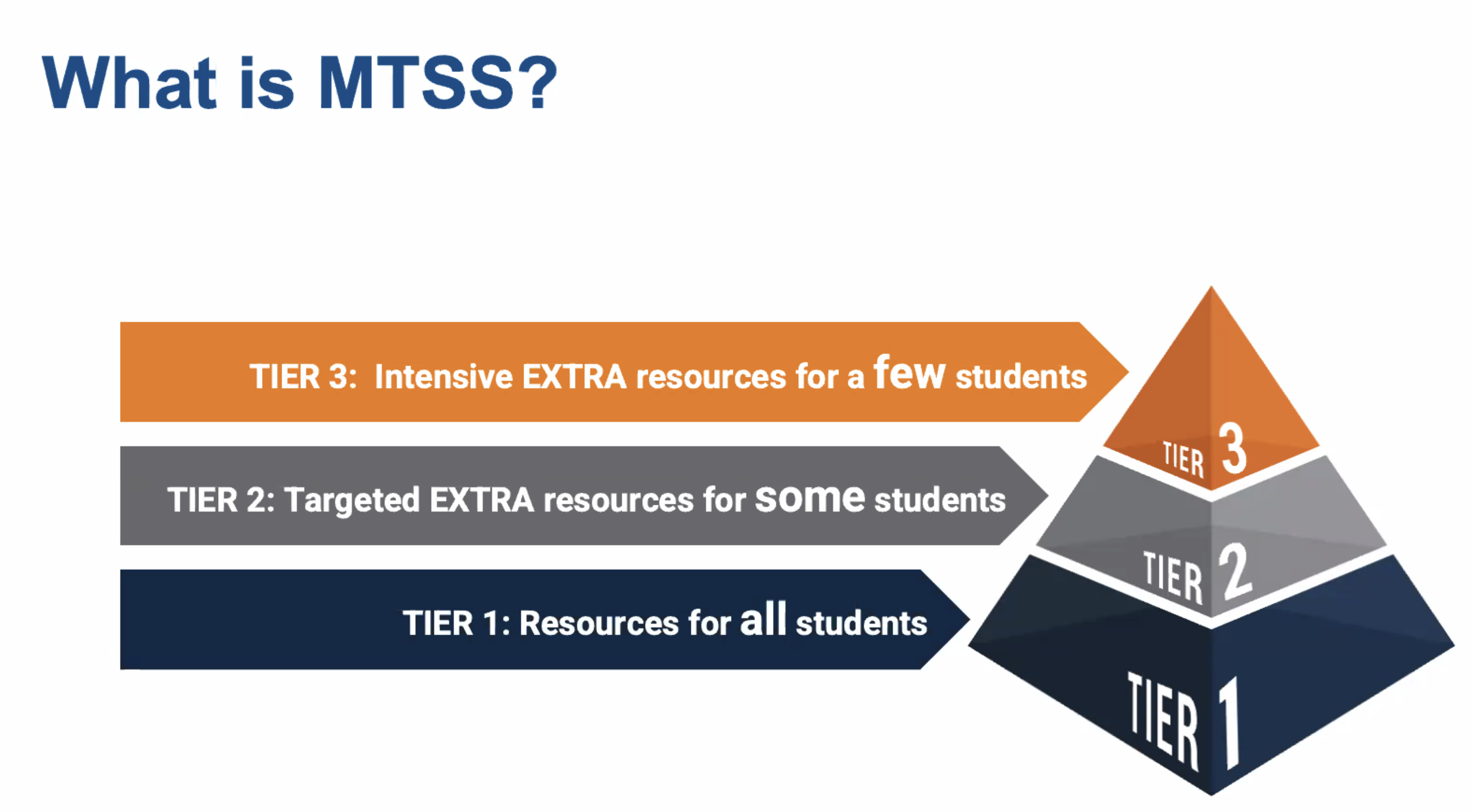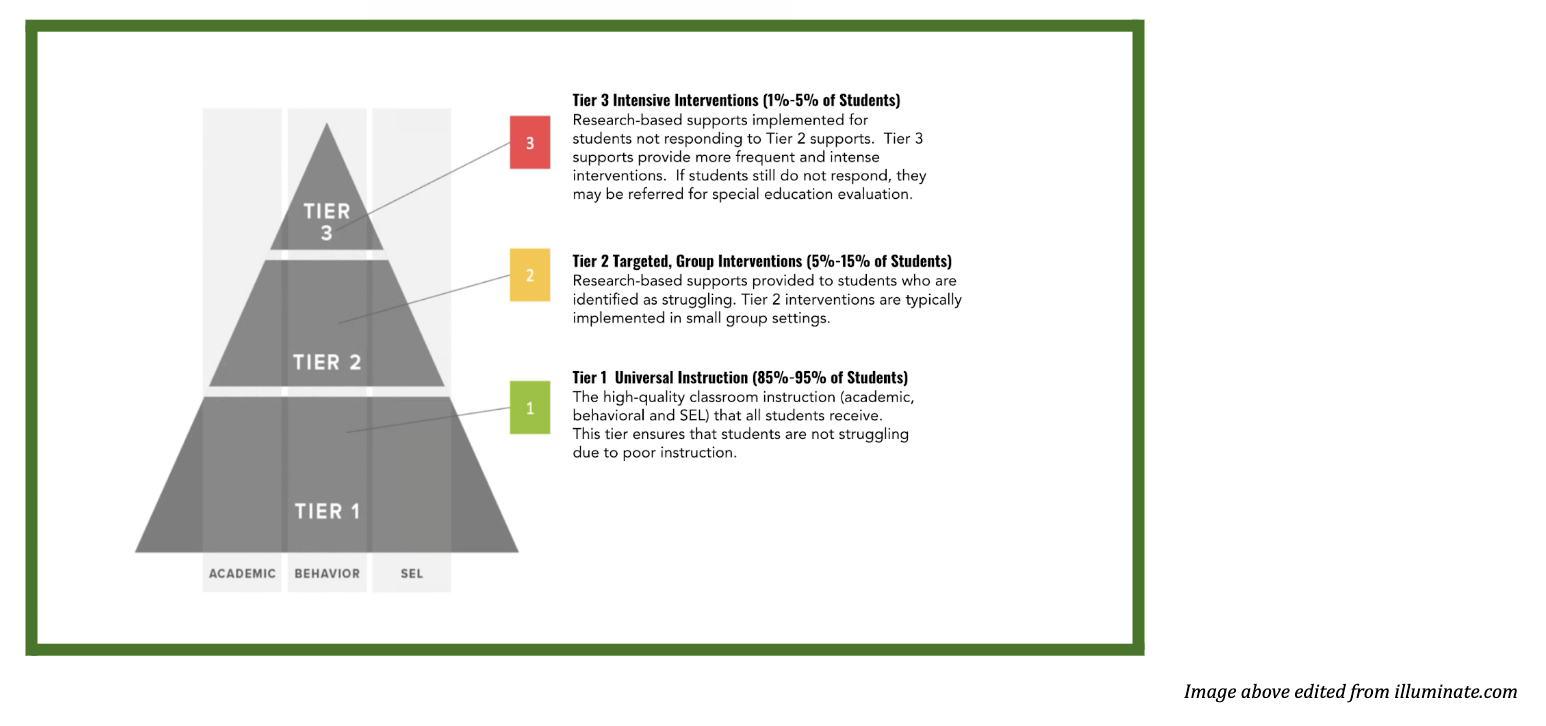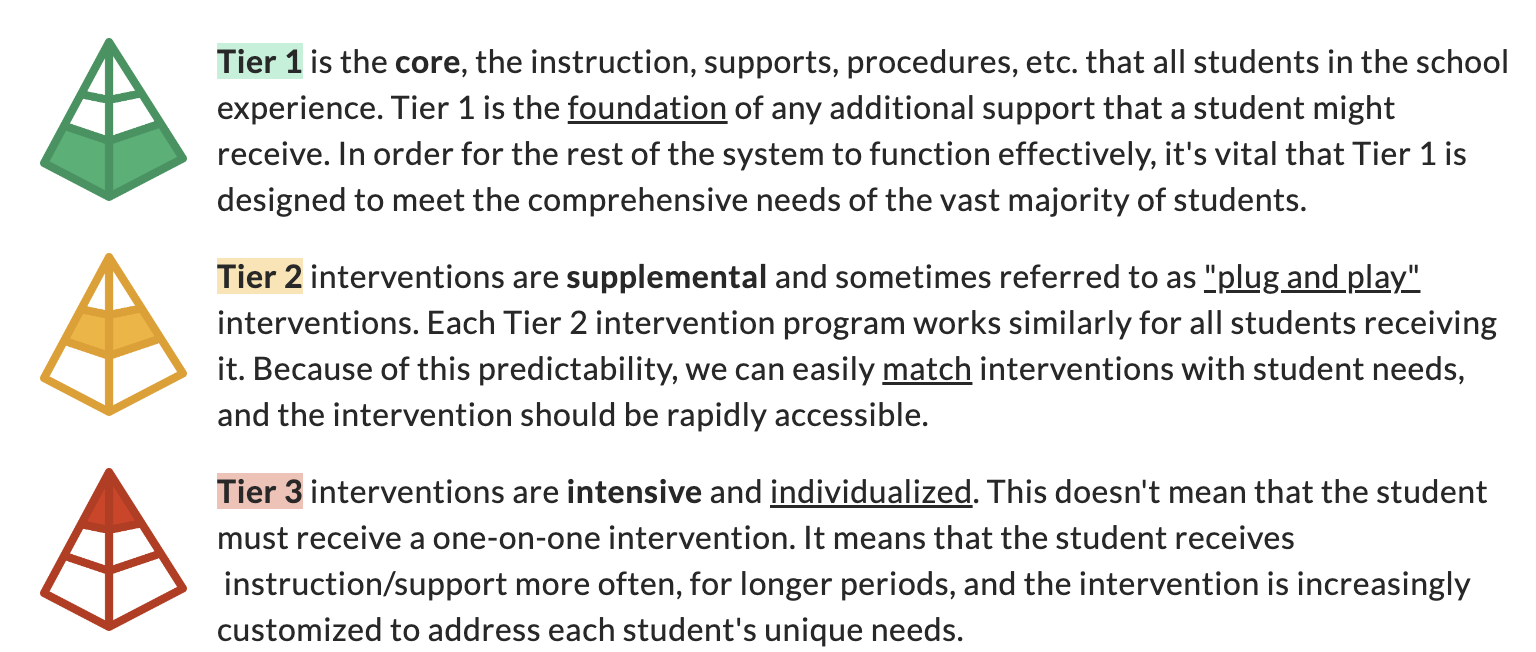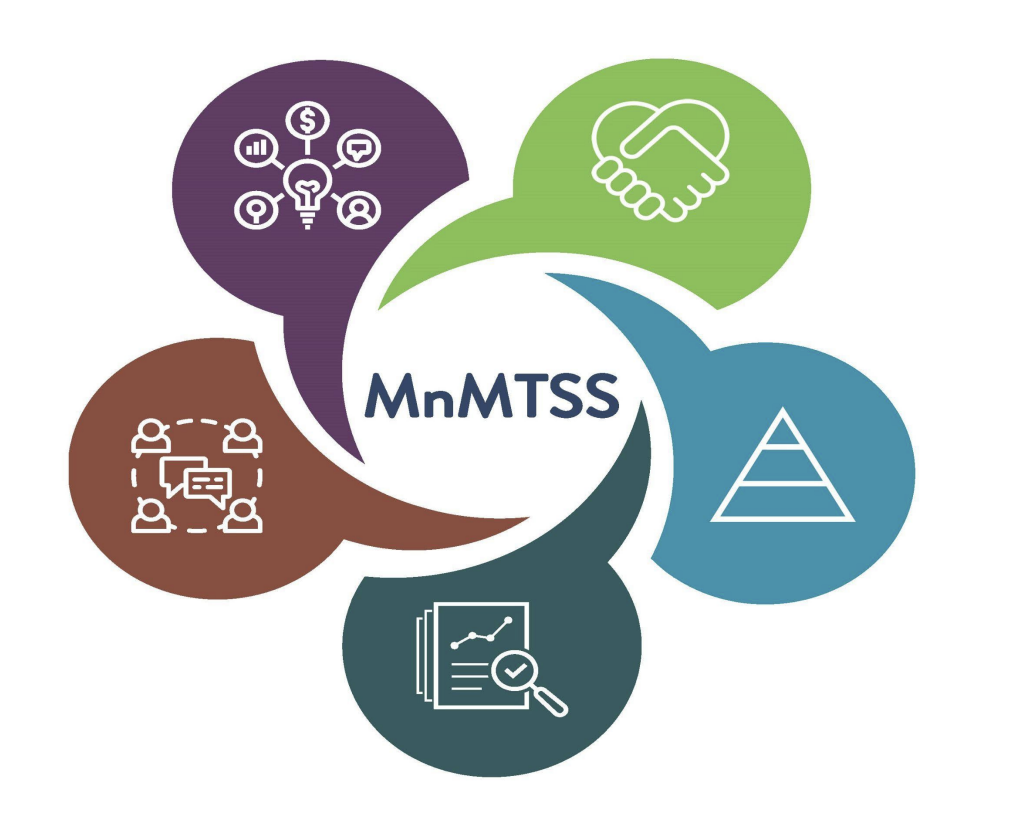-

"A MTSS framework allows for a continuum of tiered levels of support, working together endlessly, to improve student academic and social, emotional and behavioral outcomes. The image below depicts the proficiency levels ISD #318 is committed to achieving using this research-based framework."

Understanding the Tiers of Support Within the MTSS Framework

image above from: https://www.scred.k12.mn.us/cms/one.aspx?portalid=3022526&pageid=49072736
-
MTSS Staff Resources (Quick link to folders from MTSS shared drive)
-
Five Foundational Components of MnMTSS (adopted by ISD #318)

- Infrastructure the Supports Continuous Improvement: Infrastructure refers to the collection of physical, relational, and procedural mechanisms in a system that support people as they coordinate and work efficiently together. These components provide the structural stability for initiatives to be installed, sustained, and improved independent of particular individuals and personalities. An effective school infrastructure increases the likelihood that improvement efforts are focused and aligned and that educators are empowered to ensure equitable, healing-centered, assets-based social, emotional, behavioral, developmental, and academic outcomes for every student.
- Family and Community Engagement: Family Engagement is a process and a practice rooted in relational-trust which creates opportunities for equitable partnerships between families and school and district staff. These partnerships, from birth to graduation, nurture shared responsibility for students’ academic and social success and honor the lived experiences, expertise, and cultural knowledge of all stakeholders--students, teachers, staff, families, and communities.
- Multi-Layered Practices and Support: Tiered service facilitation is a school-wide, culturally and linguistically sustaining multilayered system of practices that intensifies instruction and supports as needed, so that each student meets rigorous and meaningful social, emotional, behavioral, developmental, and academic benchmarks. The tiers described refer to levels of support students receive, not to students themselves.
- Assessment: Assessment is the process of gathering evidence aligned to a specific purpose to be used in making educational decisions that improve the learning conditions for all students. A variety of assessment types and tools are used within the education system (classroom, school district, statewide), and the results should be used according to the intended purpose and the level of specificity of the information produced. Together, information om each system layer and assessment type describes the learning outcomes in relation to the defined expectations for all students. Assessments must be designed and validated for specific purposes.
- Data-based Decision Making: Data are used to solve problems and make important decisions that impact student academic, behavior, and social-emotional well-being. Such decisions should create a continuous cycle of systems improvement involving educator support, policy enhancement, and procedural/instructional improvement. Data sources might include existing academic and demographic records, surveys, interviews, observations, program/policy/process data and fidelity data.
information above from https://education.mn.gov/mde/dse/mtss/
-
MTSS Guiding Documents and Information
- District Norms: Be Engaged, Be Focused, Be Professional, Be Real
- eduCLIMBER Quicklink (to come)/eduCLIMBER District ID 1686
- ISD #318 MTSS Meeting Cycle
- Consensus Ladder Link to Resource
-
Minnesota and Federal Statutes Related to MTSS
Effective implementation of the MTSS framework ensures that all students receive evidence-based instruction that leads to proficiency in the academic areas to which it is applied. Below are state and federal mandates that support MTSS frameworks and guide implementation.
Reading Proficiently No Later Than the End of Grade 3 (Minn. Stat. § 120B.12).
Alternative Delivery of Specialized Instructional Services (Minn. Stat. § 125A.50).
Alternate Instruction Required Before Assessment Referral (Minn. Stat. § 125A.56).
Minnesota Administrative Rules/Specific Learning Disabilities
Positive Behavioral Interventions and Supports (Minn. Stat § 122A.627).
Individuals with Disabilities Act (Section 1414 (d) (1) (A) (i) (II, III)
Individuals with Disabilities Act Child Find (Section 300.111)

